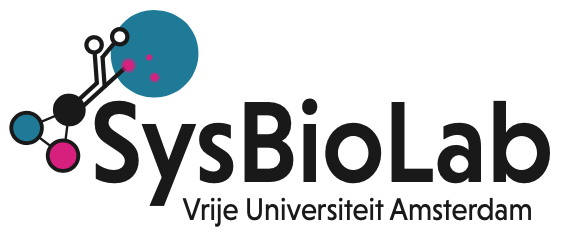Maaike and Pranas participated in the third summer school on Economic Principles in Cell Biology that took place on the 8-11th July, 2024, in Paris and online. Lab PhD students Francesco and Luis also attended the lectures online. Maaike was one of some 30 participants selected for in-person attendance, and Pranas gave one of the introductory lectures, “An inventory of cell components” (together with Diana Széliová, University of Vienna). A small size of this course came to our advantage for the social part: we enjoyed both the science and the beers at the Seine (and watching EURO2024!) with colleagues coming from different parts of the continent and beyond.
The scientific part of the summer school was accompanied by two more soft-skills oriented activities: first, the workshop on the creative process in science, Night Science by Martin Lercher. You might have heard of the editorials- and podcast series of Martin and Itai Yanai under the same name – give it a listen if you haven’t! The last day was dedicated for the Atelier SEnS, a workshop on exploring the relationship between one’s personal values and the research they conduct.
The summer school is an activity that emerged from the community initiative of the same name that aimed to bring the colleagues working under similar philosophy together. It all started as a monthly seminar via Zoom in early 2020, organized by a handful of professors (including our own Frank!), and the community expanded over time. Eventually, an idea to write an open-source textbook started gaining momentum. The book project is led by Wolfram Liebermeister at INRAE (France), and Pranas is one of the coordinators of the initiative since recently. The summer school is one of the ways to promote the textbook project, and to test its didactical value in practice.
Overall, it was a very nice experience, and quite a relaxed one (in both best and worst ways of it). The 2025 summer school, if all things turn as planned, will be held in Vienna, with a lot of improvements/changes planned, so we are quite excited to join it if it materializes!

Recent Comments